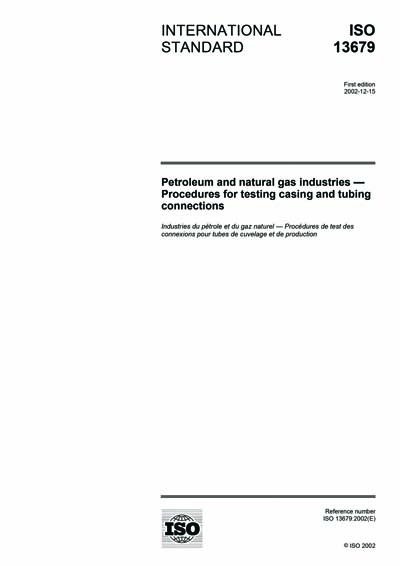Historical
ISO 13679:2002
Petroleum and natural gas industries - Procedures for testing casing and tubing connections
ISO 13679:2002 establishes minimum design verification testing procedures and acceptance criteria for casing and tubing connections for the oil and natural gas industries. These physical tests are part of a design verification process and provide objective evidence that the connection conforms to the manufacturer's claimed test load envelope and limit loads.
It categorizes test severity into four test classes.
It describes a system of identification codes for connections.
ISO 13679:2002 does not provide the statistical basis for risk analysis.
ISO 13679:2002 addresses only three of the five distinct types of primary loads to which casing and tubing strings are subjected in wells: fluid pressure (internal and/or external), axial force (tension or compression), bending (buckling and/or wellbore deviation), as well as make-up torsion. It does not address rotation torsion, non-axisymetric (area, line or point contact).
ISO 13679:2002 specifies tests to be performed to determine the galling tendency, sealing performance and structural integrity of casing and tubing connections that apply to the service application and not to the diameter of the pipe.
International Organization for Standardization [iso]


